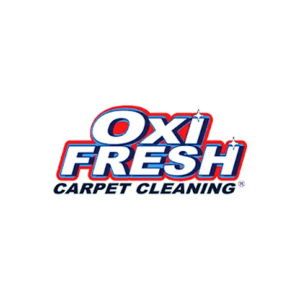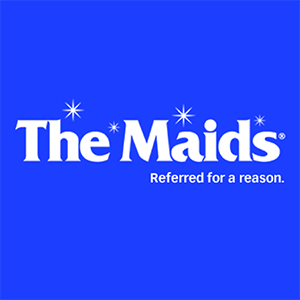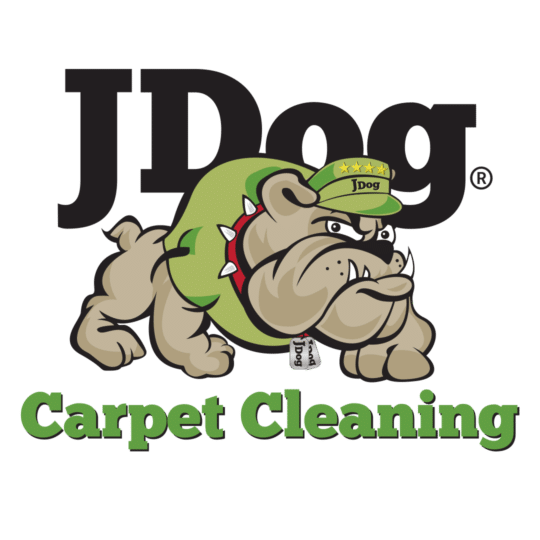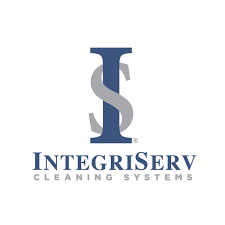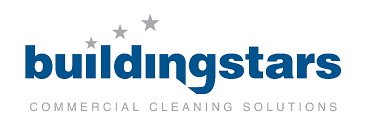Best Cleaning Franchise Opportunities for 2025
The cleaning franchise industry is booming in 2025! Whether you’re drawn to residential or commercial services, discover top franchises offering proven models, scalable growth, and strong returns. Find the perfect fit for your investment goals today!
Table of Contents:
The cleaning franchise industry continues to thrive, offering potential opportunities for investors in 2025. From homes to offices, demand for reliable cleaning services is rising, making this sector a smart choice for those seeking a stable business with growth potential.
In this article, we’ll explore top cleaning franchise options in both commercial and residential segments. In addition, we will talk about the pros and cons of each segment, and by breaking these into two distinct categories, you can more easily identify which opportunity best aligns with your goals and investment capacity.
What is a cleaning franchise?
The Home & Building Services industry on Vetted Biz features two categories of cleaning franchises catering to different needs. One is Commercial Cleaning and the other is Residential Cleaning.
Commercial Cleaning focuses on offices, schools, and industrial facilities, while Residential Cleaning covers homes and apartments. Our detailed lists will help you decide which path to take in 2025’s thriving cleaning industry.
The Commercial Cleaning category refers to the sector of business that provides professional cleaning services to commercial establishments, including offices, retail stores, educational institutions, healthcare facilities, industrial facilities, hospitality establishments, and other commercial properties. The primary focus of the commercial cleaning industry is to ensure clean, hygienic, and well-maintained environments for businesses and their customers.
The Residential Cleaning category refers to the sector of business that focuses on providing products and services related to cleaning and maintaining cleanliness within residential settings. It encompasses a wide range of products, tools, equipment, and services designed to assist individuals in keeping their homes clean, organized, and free from dirt, dust, and other contaminants.
How to open a cleaning franchise?
Opening a cleaning franchise offers entrepreneurs the chance to leverage a proven business model, strong branding, and comprehensive operational support. The process usually involves researching franchise options, securing financing, signing agreements, and undergoing training programs. It’s essential to understand local market demands and regulations, whether focusing on residential or commercial cleaning. Resources like the International Franchise Association and franchise directories can provide valuable guidance. Tools such as the Vetted Biz franchise opportunities tool can simplify the journey by helping identify top cleaning franchises tailored to your goals.
Cleaning franchise market industry statistics
The cleaning industry remains one of the most resilient sectors in franchising, driven by consistent demand across residential and commercial markets. The global cleaning services market is projected to reach $88.9 billion by 2025, reflecting a steady annual growth rate. This growth is fueled by increased outsourcing of cleaning services and rising hygiene standards.
In the U.S., the cleaning franchise industry has over 36,000 units in operation, contributing to billions in annual revenue. Commercial cleaning franchises make up the bulk of this market, servicing businesses, schools, and healthcare facilities. Meanwhile, residential cleaning franchises cater to busy households and are witnessing increased demand for eco-friendly and specialized services.
Investing in a cleaning franchise offers strong returns. According to Vetted Biz data, the average cleaning franchise has a payback period of 2.5 years and a sales-to-investment ratio of 2:1. These figures highlight the industry’s potential for profitability and efficient capital recovery.
Initial investment costs vary, but many cleaning franchises offer low-cost entry points. On average, franchise costs range from $50,000 to $150,000, making them accessible for first-time entrepreneurs. Additionally, ongoing support and scalable business models provide opportunities for long-term growth. Explore the best home and building service franchises on Vetted Biz.
Metric – Average Estimate
- Payback Period: 2.5-5 years
- Sales-to-Investment Ratio: 2:1
- Franchise Cost: $50,000 – $150,000
Cleaning franchise segments
- Residential Cleaning Focuses on home and apartment cleaning, including general housekeeping, deep cleaning, and specialized services like eco-friendly cleaning.
- Commercial Cleaning Caters to offices, schools, healthcare facilities, and industrial spaces, offering regular maintenance, janitorial services, and sanitation solutions.
- Carpet and Floor Cleaning Specialized in cleaning and restoring carpets, hardwood, and tile floors, often providing stain removal and protection services.
- Window Cleaning Offers cleaning for windows, glass surfaces, and facades, serving both residential and commercial properties.
- Disaster Restoration Provides cleanup and recovery services after water, fire, or mold damage, helping businesses and homeowners restore their properties.
Best Cleaning Franchises
Vetted Biz has curated a list of the Top 10 Residential Cleaning Franchises and the Top 10 Commercial Cleaning Franchises, ranked by their fastest-growing brands. This comprehensive list highlights diverse franchise models, from home-based maid services to large-scale janitorial operations. Each franchise includes detailed insights into the pros and cons, helping investors identify opportunities aligned with their business goals and market needs. Whether you’re looking for flexibility with residential services or scalability in commercial cleaning, Vetted Biz provides the data to make an informed investment decision.
Residential Cleaning Franchises
Residential Cleaning franchises are those that are focused on offering cleaning services to residences. Let’s take a look at the 10 best residential cleaning franchises below.
10 best Residential Cleaning franchises
1. Maid This
MaidThis is a fast-growing residential and vacation rental cleaning franchise that leverages technology to streamline operations and provide top-notch services. With 15 locations, 13 of which are franchised, MaidThis has positioned itself as a leader in cleaning services with a focus on simplicity and efficiency. Its 3-year unit growth rate of an impressive 1200% highlights its rapid expansion and investor appeal.
The MaidThis franchise model is designed for entrepreneurs seeking a low-cost, home-based business with flexible operations. Franchisees benefit from a proven system, ongoing support, and advanced tools to manage bookings and staff. Financial requirements include an initial franchise fee of $39,000, an estimated total initial investment of $50,000 to $68,000, and a 6% royalty fee, making it an attractive option for first-time franchisees.
2. Home Clean Heroes
Home Clean Heroes is a modern and customer-focused residential cleaning franchise with a growing presence across the U.S. With 18 locations, 16 of which are franchised, the brand has demonstrated a strong 3-year unit growth rate of 434%. Known for its commitment to quality and professionalism, Home Clean Heroes offers a fresh approach to home cleaning services.
The franchise model provides comprehensive support, including marketing, operations, and training, making it ideal for entrepreneurs seeking a structured business with growth potential. Financial requirements include an initial franchise fee of $39,000, an estimated total initial investment of $113,000 to $196,000, and a 6% royalty fee, reflecting the brand’s value and commitment to franchisee success.
3. Maid Right
Maid Right is a premium residential cleaning franchise known for its personalized services and commitment to customer satisfaction. With 44 franchised locations across the U.S., Maid Right has achieved a 3-year unit growth rate of 120%, reflecting its steady expansion and strong market presence. The brand is recognized for using advanced cleaning techniques and eco-friendly products.
Maid Right’s franchise model offers comprehensive training, marketing support, and a proven operational system, making it ideal for those seeking a scalable cleaning business. Financial requirements include an initial franchise fee of $65,000, an estimated total initial investment of $104,000 to $148,000, and a 6% royalty fee. This combination of growth and support makes Maid Right an attractive option for prospective franchisees. Dive deeper into Maid Right’s business plan with financial model here.
4. Trublue
TruBlue Total House Care is a unique franchise offering both residential cleaning and home maintenance services. With 94 franchised locations across the U.S., TruBlue has experienced a 3-year unit growth rate of 105%, showcasing its steady expansion and appeal to homeowners seeking comprehensive care for their properties.
The TruBlue franchise model supports multiple revenue streams, including maid services, handyman repairs, and senior home maintenance programs. This diversified approach makes it ideal for entrepreneurs looking for a versatile business. Financial requirements include an initial franchise fee of $49,900, an estimated total initial investment of $70,000 to $96,000, and a 6% royalty fee, offering a cost-effective way to enter the home services market.
5. Two Maids
Two Maids is a well-established residential cleaning franchise known for its customer-centric approach and innovative pay-for-performance model. With 117 franchised locations across the U.S., the brand has seen a 3-year unit growth rate of 47%, reflecting its steady and reliable expansion. Two Maids focuses on delivering quality and customized cleaning services to meet various household needs.
The franchise model provides strong operational support, marketing assistance, and advanced scheduling tools, making it a great option for aspiring entrepreneurs. Financial requirements include an initial franchise fee of $19,950, an estimated total initial investment of $93,000 to $150,000, and a 6% royalty fee, making it a competitive and accessible investment in the residential cleaning industry.
6. Oxi Fresh Carpet Cleaning
Oxi Fresh Carpet Cleaning is a leading eco-friendly carpet cleaning franchise known for its fast-drying, non-toxic cleaning methods. With 490 locations in the U.S., 477 of which are franchised, Oxi Fresh has maintained steady growth, achieving a 3-year unit growth rate of 19%. The brand’s innovative cleaning technology and commitment to sustainability set it apart in the industry.
The Oxi Fresh franchise model offers comprehensive training, marketing support, and a low-overhead business structure, making it ideal for entrepreneurs seeking a scalable and environmentally conscious business. Financial requirements include an initial franchise fee of $46,900 and an estimated total initial investment ranging from $53,000 to $83,000. This affordable entry point and proven system make Oxi Fresh an attractive opportunity for franchisees.
7. Ecomaids
Ecomaids is a residential cleaning franchise dedicated to providing eco-friendly and non-toxic cleaning services. With 58 franchised locations across the U.S., Ecomaids has achieved a 3-year unit growth rate of 16%, reflecting its steady expansion and growing demand for green cleaning solutions. The brand stands out for its commitment to sustainability and health-conscious cleaning practices.
The Ecomaids franchise model offers extensive training, marketing support, and a proven system tailored to the eco-conscious market. This opportunity is ideal for entrepreneurs looking to align with environmentally responsible values. Financial requirements include an initial franchise fee of $94,950, an estimated total initial investment of $129,000 to $151,000, and a 7% royalty fee, making it a strong choice in the green cleaning sector. Check out this article to learn more about Ecomaid’s costs, fee, & FDD.
8. The Maids
The Maids is a well-established residential cleaning franchise known for its efficient, team-based cleaning approach and commitment to quality service. With 1,590 locations in the U.S., 1,448 of which are franchised, The Maids has demonstrated steady growth with a 3-year unit growth rate of 11%. The brand’s reputation for reliability and thorough cleaning has earned it a loyal customer base.
The franchise model provides extensive training, marketing support, and a proven system designed to optimize efficiency. It’s ideal for entrepreneurs seeking a recognized brand with a history of success. Financial requirements include an initial franchise fee of $57,000, an estimated total initial investment of $81,000 to $159,000, and a 6% royalty fee, making it a solid choice for those entering the residential cleaning market. Click here to dive deeper into The Maids’ business plan with financial model.
9. The Cleaning Authority
The Cleaning Authority is a trusted residential cleaning franchise known for its detailed cleaning services and commitment to eco-friendly practices. With 224 locations in the U.S., 221 of which are franchised, the brand has maintained steady growth with a 3-year unit growth rate of 7%. The Cleaning Authority is recognized for its systematic approach and use of environmentally responsible products.
The franchise model offers comprehensive training, advanced scheduling tools, and strong operational support, making it an appealing choice for entrepreneurs. Financial requirements include an initial franchise fee of $17,500, an estimated total initial investment ranging from $82,000 to $173,000, and a 5% royalty fee, providing an affordable entry into the residential cleaning industry. Learn more about The Cleaning Authority’s business plan with their financial model.
10. Maid Brigade
Maid Brigade is a well-established residential cleaning franchise known for its commitment to green cleaning and customer satisfaction. With 346 locations in the U.S., 322 of which are franchised, Maid Brigade has seen a 3-year unit growth rate of -3%, reflecting slight contraction in a competitive market. The brand differentiates itself with a focus on eco-friendly products and health-conscious services.
The Maid Brigade franchise model offers comprehensive support, including training, marketing, and advanced cleaning technologies. It appeals to entrepreneurs who value sustainability and quality service. Financial requirements include an initial franchise fee of $33,850, an estimated total initial investment of $120,000 to $149,000, and a 7% royalty fee, making it a viable option for those committed to green cleaning solutions. Click here to learn more about Maid Brigade’s business plan with financial model.
Pros
Pros
Consistent Demand: Busy households create steady demand for cleaning services, ensuring a reliable customer base year-round.
Low Initial Investment: Many residential cleaning franchises have relatively low startup costs, making them accessible to first-time entrepreneurs.
Flexible Scheduling: Owners can often set their own hours, offering flexibility to manage work-life balance effectively.
Scalable Business Model: Start with a small team and gradually expand by adding more staff or service areas.
Recurring Revenue: Many clients prefer weekly or bi-weekly cleaning schedules, providing dependable recurring income.
Cons
Cons
High Competition: The residential cleaning market is saturated, with both franchise and independent service providers competing for clients.
Employee Turnover: Retaining reliable cleaning staff can be challenging due to the nature of the work and industry pay rates.
Price Sensitivity: Clients may prioritize cost over quality, making it difficult to raise prices without losing business.
Physical Labor: The work is physically demanding, which can lead to potential injuries or employee burnout.
Client Dependence: Losing a few key clients can significantly impact revenue, making customer retention crucial for success.
Commercial Cleaning Franchises
Commercial Cleaning franchises are those that are focused on offering cleaning services to businesses or enterprises. Let’s take a look at the 10 best Commercial Cleaning franchises below.
10 best commercial cleaning franchises
1. Corporate Cleaning Group
Corporate Cleaning Group specializes in commercial cleaning services for a variety of industries, including healthcare, education, and corporate offices. With 31 locations in the U.S., 29 of which are franchised, the brand has achieved a remarkable 3-year unit growth rate of 190%, reflecting its strong expansion and demand for quality commercial cleaning solutions.
The franchise model offers comprehensive training, marketing support, and a proven operational system, making it ideal for entrepreneurs looking to enter the commercial cleaning sector. Financial requirements include an initial franchise fee of $59,500, an estimated total initial investment of $95,000 to $141,000, and a 6% royalty fee, making it a solid and scalable investment opportunity.
2. Jdog Carpet Cleaning
JDog Carpet Cleaning is a veteran-owned and operated franchise specializing in carpet, upholstery, and floor cleaning services. With 17 franchised locations in the U.S., JDog has seen an impressive 3-year unit growth rate of 113%, highlighting its rapid expansion and appeal to both customers and veteran entrepreneurs. The brand is known for its commitment to service, integrity, and eco-friendly practices.
The JDog franchise model provides extensive training, operational support, and a strong community of veteran business owners. Financial requirements include an initial franchise fee of $25,000 and an estimated total initial investment ranging from $43,000 to $206,000. This flexible investment range makes it accessible for a wide variety of entrepreneurs looking to serve their communities.
3. Image One Facility Solutions
Image One Facility Solutions is a commercial cleaning franchise known for its comprehensive janitorial services and commitment to innovative cleaning solutions. With 20 franchised locations across the U.S., Image One has achieved a 3-year unit growth rate of 100%, reflecting strong expansion and a growing demand for professional facility cleaning services.
The Image One franchise model offers thorough training, advanced technology for managing operations, and ongoing support, making it ideal for entrepreneurs seeking an efficient and scalable business. Financial requirements include an initial franchise fee of $29,750, an estimated total initial investment of $44,000 to $61,000, and a 10% royalty fee, positioning it as a low-cost entry into the commercial cleaning industry.
4. Integriserv Cleaning Systems
Integriserv Cleaning Systems is a commercial cleaning franchise known for its efficient janitorial services and commitment to customer satisfaction. With 89 franchised locations across the U.S., Integriserv has achieved a 3-year unit growth rate of 68%, reflecting solid expansion in the competitive commercial cleaning market. The brand emphasizes quality service and professional standards for a wide range of industries.
The Integriserv franchise model offers low initial investment, extensive training, and ongoing support, making it ideal for entrepreneurs seeking an affordable and scalable business. Financial requirements include an initial franchise fee of $23,260, an estimated total initial investment ranging from $3,000 to $50,000, and a 10% royalty fee, making it an accessible option in the commercial cleaning industry.
5. Jantize America
Jantize America is a commercial cleaning franchise known for its reliable janitorial services and comprehensive facility maintenance solutions. With 152 franchised locations across the U.S., Jantize America has demonstrated steady growth, achieving a 3-year unit growth rate of 64%. The brand focuses on delivering professional cleaning services to offices, schools, and other commercial facilities.
The Jantize America franchise model provides thorough training, marketing support, and a scalable business structure, making it ideal for entrepreneurs looking to enter the commercial cleaning sector. Financial requirements include an initial franchise fee of $29,500, an estimated total initial investment of $37,000 to $76,000, and a 9% royalty fee, offering a balanced opportunity for growth and profitability.
6. Buildingstars
Buildingstars is a prominent commercial cleaning franchise known for its tailored cleaning services for offices, healthcare facilities, and corporate environments. With 1,073 locations in the U.S., 1,060 of which are franchised, Buildingstars has achieved a 3-year unit growth rate of 55%, reflecting steady expansion and strong market demand. The brand focuses on providing high-quality, customized cleaning solutions.
The franchise model offers low startup costs, comprehensive training, and ongoing support, making it an appealing choice for entrepreneurs. Financial requirements include an initial franchise fee of $19,998, an estimated total initial investment ranging from $2,000 to $53,000, and a 10% royalty fee, providing an affordable entry into the commercial cleaning industry with strong growth potential. Check out Buildingstars’ costs, fees, and FDD in this article.
7. Stratus Building Solutions
Stratus Building Solutions is a leading commercial cleaning franchise known for its eco-friendly cleaning services and comprehensive facility maintenance solutions. With 3,144 franchised locations in the U.S., Stratus has achieved a 3-year unit growth rate of 54%, highlighting its strong expansion and established market presence. The brand is recognized for its commitment to green cleaning and customizable service offerings.
The Stratus franchise model provides extensive training, marketing support, and scalable business opportunities, making it ideal for entrepreneurs looking to enter the commercial cleaning industry. Financial requirements include an initial franchise fee of $36,300, an estimated total initial investment ranging from $4,000 to $80,000, and a 5% royalty fee, making it a cost-effective and profitable investment choice. To learn more about the franchise’s business plan and financial model out this link.
8. Corvus
Corvus Janitorial Systems is a reputable commercial cleaning franchise known for its reliable janitorial services and dedication to customer satisfaction. With 202 franchised locations across the U.S., Corvus has experienced a 3-year unit growth rate of 36%, demonstrating steady expansion in the competitive commercial cleaning market. The brand focuses on providing customizable and professional cleaning services for offices, schools, and healthcare facilities.
The Corvus franchise model offers low startup costs, comprehensive training, and ongoing support, making it an accessible entry point for aspiring entrepreneurs. Financial requirements include an initial franchise fee of $9,625, an estimated total initial investment ranging from $6,000 to $38,000, and a 10% royalty fee, making Corvus an attractive and affordable option in the commercial cleaning industry.
9. Bio-One
Bio-One is a specialized cleaning franchise focusing on crime scene, trauma, and biohazard cleanup services. With 130 franchised locations across the U.S., Bio-One has achieved a 3-year unit growth rate of 24%, reflecting steady demand for its unique and essential services. The brand is known for its compassionate approach and professional handling of sensitive cleaning situations.
The Bio-One franchise model offers comprehensive training, marketing support, and a proven system for handling biohazard situations, making it ideal for entrepreneurs seeking a niche cleaning business with high demand. Financial requirements include an initial franchise fee of $60,000, an estimated total initial investment ranging from $116,000 to $170,000, and a 8% royalty fee, positioning it as a specialized, high-reward opportunity in the cleaning industry.
10. Executive Image
Executive Image is a commercial cleaning and facility services franchise known for delivering professional janitorial, floor care, and landscape maintenance services. With 54 locations in the U.S., 53 of which are franchised, the brand has achieved a 3-year unit growth rate of 24%, reflecting steady expansion and strong demand for comprehensive facility maintenance solutions.
The Executive Image franchise model provides extensive training, marketing support, and a scalable business structure, making it an attractive option for entrepreneurs. Financial requirements include an initial franchise fee of $35,000, an estimated total initial investment of $39,000 to $83,000, and a 10% royalty fee, offering a well-rounded opportunity for those entering the commercial cleaning industry.
Pros
Pros
Steady Demand: Businesses, offices, schools, and healthcare facilities require regular cleaning services, ensuring consistent demand and long-term contracts.
Higher Revenue Potential: Commercial contracts often involve larger spaces and recurring services, leading to higher overall revenue compared to residential cleaning.
Flexible Scheduling: Cleaning services are typically performed outside regular business hours, offering flexibility in scheduling operations.
Scalability: Easier to scale by adding more staff and equipment as your client base grows, allowing for significant business expansion.
Diverse Client Base: Serves a wide range of industries, reducing risk by diversifying revenue streams.
Cons
Cons
High Competition: The commercial cleaning sector is highly competitive, with many established providers and new entrants vying for contracts.
Client Dependence: Losing a major commercial client can significantly impact revenue, making client retention critical.
Operational Complexity: Managing multiple staff, equipment, and large-scale jobs can be more complex compared to residential cleaning.
After-Hours Work: Cleaning often happens at night or on weekends, which can lead to challenges in staffing and supervision.
Higher Equipment Costs: Commercial cleaning requires industrial-grade equipment and supplies, leading to higher initial and ongoing costs.
Conclusion
The cleaning franchise industry offers diverse opportunities for investors looking to enter a thriving market in 2025. With growing demand across both residential and commercial sectors, these franchises provide proven business models, established branding, and comprehensive support systems. Whether you are drawn to the flexibility of residential cleaning services or the scalability of commercial cleaning contracts, there is a franchise to suit your investment goals.
Franchises like Maid This, Home Clean Heroes, and Maid Right highlight the rapid growth potential in the residential segment, while commercial cleaning brands like Stratus Building Solutions and Corporate Cleaning Group demonstrate strong expansion in the business sector.
Vetted Biz’s curated lists of top-performing cleaning franchises offer valuable insights into each brand’s strengths, helping you make an informed decision. By understanding the pros and cons of each segment, potential investors can identify the right cleaning franchise to achieve long-term success. The cleaning industry’s resilience and growth potential make it an attractive venture for 2025 and beyond.






